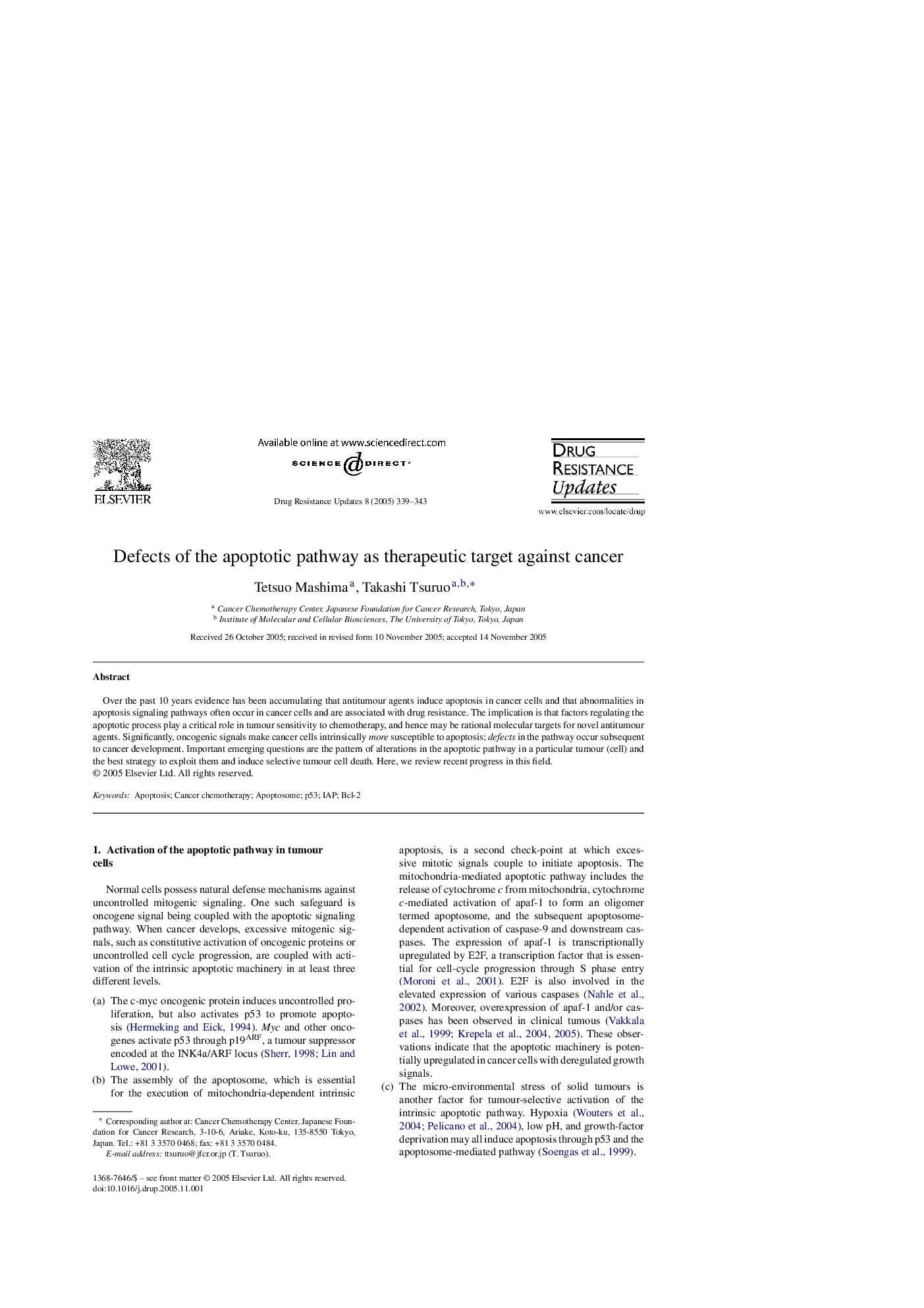| Article ID | Journal | Published Year | Pages | File Type |
|---|---|---|---|---|
| 10903584 | Drug Resistance Updates | 2005 | 5 Pages |
Abstract
Over the past 10 years evidence has been accumulating that antitumour agents induce apoptosis in cancer cells and that abnormalities in apoptosis signaling pathways often occur in cancer cells and are associated with drug resistance. The implication is that factors regulating the apoptotic process play a critical role in tumour sensitivity to chemotherapy, and hence may be rational molecular targets for novel antitumour agents. Significantly, oncogenic signals make cancer cells intrinsically more susceptible to apoptosis; defects in the pathway occur subsequent to cancer development. Important emerging questions are the pattern of alterations in the apoptotic pathway in a particular tumour (cell) and the best strategy to exploit them and induce selective tumour cell death. Here, we review recent progress in this field.
Related Topics
Life Sciences
Biochemistry, Genetics and Molecular Biology
Cancer Research
Authors
Tetsuo Mashima, Takashi Tsuruo,
